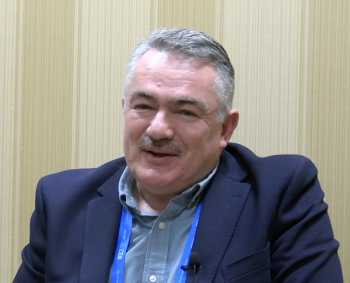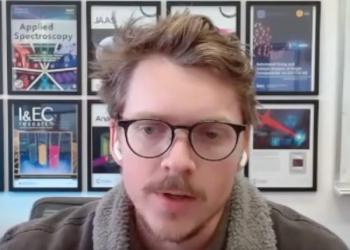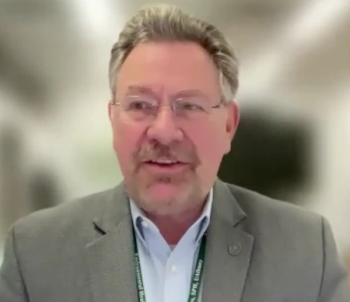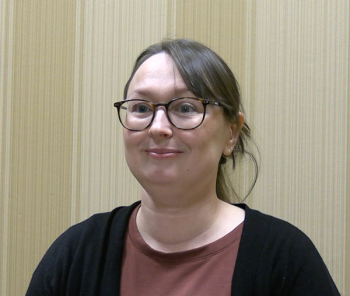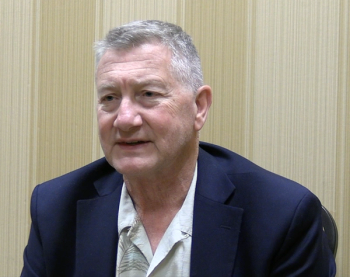
John Kalivas Receives 2023 EAS Award for Outstanding Achievements in Chemometrics
John H. Kalivas, a professor in the Department of Chemistry at Idaho State University, has been named the winner of the 2023 EAS Award for Outstanding Achievements in Chemometrics.
John H. Kalivas a professor in the Department of Chemistry at Idaho State University has been named the winner of the 2023 EAS Award for Outstanding Achievements in Chemometrics. This award is presented to a significant individual who has made contributions to the advancement of chemometrics by superior work in developing theory, techniques, or instrumentation. The award was presented at a special symposium, arranged in honor of the awardee, at the 2023 Eastern Analytical Symposium on Monday, November 13, at 1:30 pm.
Kalivas obtained his PhD at the University of Washington in 1982 under the direction of Bruce Kowalski. After two temporary lectureship positions at University of Minnesota-Morris and Texas A&M University, he started his tenure track position at ISU in 1985. He has been named the Most Influential Professor eight times by graduating undergraduates receiving the ISU Outstanding Academic Achievement Award.
In 1994, he was named ISU Distinguished Researcher and awarded a Camille and Henry Dreyfus Scholar Award, a recognition given to early career researchers. In 2003 he was named a fellow of the International Union of Pure and Applied Chemistry (IUPAC). In 2021, he received the Idaho Jean’ne M. Shreeve NSF EPSCoR Research Excellence Award and the Society of Applied Spectroscopy Fellows Award in 2022.
Since 1990, 1993, 1998, and 2007, he has been respectively serving on the editorial boards for the Journal of Chemometrics, Analytical Letters, Applied Spectroscopy, and Talanta. He became an associate editor for Applied Spectroscopy in 2010, and an editor for the Journal of Chemometrics in 2013. In 2012, he spearheaded the formation of the Bruce R. Kowalski Award in Chemometrics administered by the Society of Applied Spectroscopy. He is the author or co-author of over 130 professional papers, book chapters, and books dealing with chemometrics.
Much of his research is focused on methodology developments for autonomous optimization of multivariate calibration and classification processes. He has also completed extensive work developing multivariate figures of merit. His recent work established model updating methods concentrating on transfer learning approaches using unlabeled data (transductive semi-supervised learning). These new processes include an autonomous model selection algorithm for up to three metaparameters (tuning parameters) specifically directed toward predicting analyte amounts in a collection of new target samples. Recent work also involved developing a new local modeling strategy that mines a spectral library leveraging hidden sample physicochemical and physiochemical properties to identify matrix matched calibration sample sets relative to predicting each new target sample. With his research team, he advanced a unique in-house fusion process that removes the optimization step for many classification methods.
His current focus is pushing the chemometric frontier using immersive analytics for virtual reality (VR) data visualization to produce new hybrid data analysis structures by combining the computer with human cognitive skills to make more efficient and accurate decisions. Immersive VR allows the user to see inside data configurations as well as feel the inherent data structure with haptic gloves. Presently, the focus is resolving complex classification situations where autonomous algorithms fail.
The program for the award symposium is as follows:
- “AI, Machine Learning, Chemoinformatics, and Chemometrics: What's the Deal,” presented by Peter Harrington of Ohio University, at 1:30 pm.
- “Temporal Surface Mode Decomposition for Catalytic Characterization,” presented by Ross Kunz of Idaho State University, at 2 pm.
- After a break at 2:30 pm, “Photonic Data Science: Model Transfer for Raman Spectra and FAIR Data Storage for Vibrational Spectroscopic Data,” presented by Thomas Bocklitz of the Leibniz-Institut of Photonic Technology (Jena, Germany) at 3 pm.
- The symposium concludes with the presentation of Kalivas’ award at 3:30 pm, followed by his lecture, “Rashomon Effect on Model Interpretability and Improving Model Generalizability,” at 3:35 pm.
Newsletter
Get essential updates on the latest spectroscopy technologies, regulatory standards, and best practices—subscribe today to Spectroscopy.

